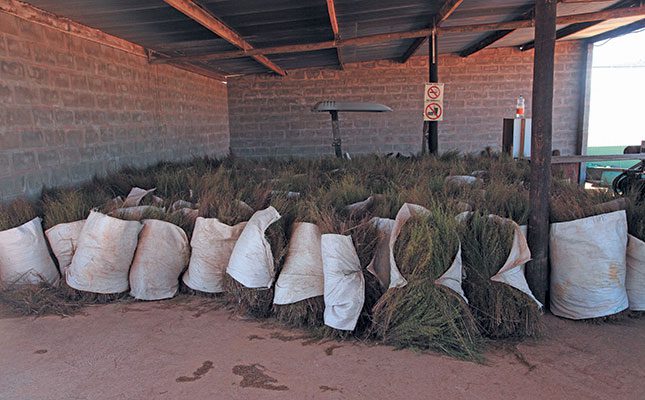
[ad_1]
Authorities has welcomed a call by the Folks’s Republic of China to considerably scale back tariff charges on imports of South African rooibos.

Based on Dr Kobus Laubscher, agricultural economist, this was excellent news certainly as at present (16 January 2024), marked Worldwide Rooibos Day, a world celebration of the enduring South African natural tea.
“This is a superb instance of bilateral inter-governmental negotiations based mostly on a requirement pull supported by a provide push. It meant that the rooibos tea trade is ready to compete available in the market on a foundation of product worth and never sentiment. Europe stays the most important off-taker of native rooibos, nevertheless it could possibly be anticipated that the choice by the Chinese language authorities to decrease tariffs may additionally spill over to that continent. Elevated exports would invariably additionally stimulate improvement on growth on grassroots stage,” he advised Farmers’ Weekly.
Based on the Division of Commerce, Business and Competitors, China, the world’s largest tea market, beforehand had tariffs starting from 15% to 30% on rooibos tea. This was diminished to six%.
The division mentioned rooibos was a singular South African tea that had gained a robust place in international markets, with tons of of hundreds of thousands of rand of annual exports in 2022.
South Africa’s Minister of Commerce, Business and Competitors, Ebrahim Patel, in August 2023 raised the tariff duties on rooibos along with his counterpart, the Chinese language Minister of Commerce, Wang Wentao, throughout the eighth assembly of the China-South Africa Joint Financial and Commerce Fee. He requested that China considers a request to reclassify rooibos tea and scale back the duties.
Following additional consideration from the Chinese language aspect, the Customs Tariff Fee of the State Council of China consequently introduced its determination to undertake a tariff code of 6%.
Based on the Rooibos Council of South Africa, roughly 20 000t of rooibos is produced in South Africa yearly. This creates employment for greater than 5 000 folks.
China is the seventh-largest importer of South African rooibos out of a complete of 45 nations in 2023. The importing nations included Japan, the Netherlands and Germany.
Rooibos was historically grown within the Cederberg mountains north of Cape City. The rooibos trade is presently price an estimated R600 million. Apparently, South Africa started exporting the tea as early as 1904.
“China is presently South Africa’s largest international buying and selling companion, with Chinese language customs reporting two-way commerce of greater than R900 billion. We look ahead to persevering with our engagements with our Chinese language counterparts as we search to maneuver exports to a larger basket of value-added agricultural and industrial merchandise,” Patel added.
[ad_2]